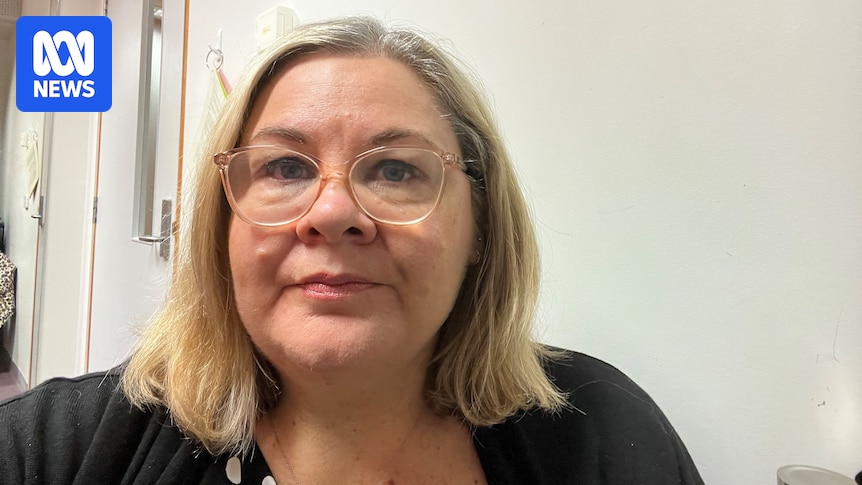It was not until Vanessa’s son had collapsed four times due to severe malnutrition that he was admitted to a hospital in Victoria last month.
The 23-year-old has avoidant/restrictive food intake disorder (ARFID), an eating disorder where persistent food avoidance and restriction leads to a failure to meet nutritional needs.
Vanessa said seeking help since her son’s diagnosis in July 2021 had left her feeling “broken”.
“We’ve been told in [hospital emergency] that he won’t die today, and to go home,” she told ABC Radio Melbourne Mornings.
“It took our son to be in a critical state before we received care.”
Loading…
Vanessa said despite the help of their GP and a psychologist, her son’s condition had continued to deteriorate.
She said he had barely eaten fruit or vegetables for two years, and sometimes would only have a couple of dry biscuits in a day.
The disordered eating led to scurvy and put severe pressure on her son’s heart.
He is currently bed bound because his bones have stress fractures due to malnutrition.
Long wait for care
It was only last month he was able to get into a psychiatrist.
“I feel like the system is broken,” Vanessa said.
“We are on waiting lists [for community programs], but we’ve been on those waiting lists for two years.”
If you or someone you know needs help:
Butterfly National Helpline — 1800 33 4673Eating Disorders Families Australia — 1300 195 626Eating Disorders Victoria — 1300 550 236Eating Disorders Qld — 07 3844 6055Professionals Credentialed in Eating DisordersLifeline on 13 11 14Suicide Call Back Service — 1300 659 467Kids Helpline — 1800 55 1800MensLine — 1300 78 99 78
After several trips to emergency departments where her son’s condition was stabilised and he was sent home, Vanessa was relieved when he was admitted to hospital in mid-May.
Because there were no specialist beds available he stayed in a dementia ward, where Vanessa said staff started the process of “re-feeding” her son.
After requesting to come home, her son was discharged earlier this month.
They have been receiving support through a Hospital in the Home (HITH) program, but when that stops in coming days the family are concerned they would once again be left to manage the condition by themselves.
“He is in a better position now, but how do we deal with the day-to-day refusal to eat? We all need mental health support to get him healthy again,” she said.
“We’re talking about young people and they have their whole life ahead of them — if only we could direct some help to these people.”
Fears anorexia, eating disorders in boys going undiagnosed
Recovery programs not accessible
Eating disorder charity Butterfly Foundation said Vanessa’s family was not alone in struggling to access appropriate services, despite eating disorders having amongst the highest fatality rates of any psychological disorder.
“[In hospital] the focus is on medical stabilisation so those people can then be discharged home,” said interim CEO Anna Cullinane.
“Unfortunately, what we then see is the services aren’t available for them that have enough intensity … so they can really continue their recovery journey [at home].”
Ms Cullinane said they would like to see the state government commit to long-term funding to ensure appropriate community services are available for people with eating disorders in both metropolitan and regional Victoria.
Loading…
‘Top priority’ for state government
A Victorian government spokesperson said providing high quality treatment for everyone impacted by an eating disorder “remains one of our top priorities”.
“That’s why we’re delivering Victoria’s first public residential eating disorder treatment centre which will offer holistic and wraparound treatment in a welcoming, home-like setting, with 24/7 support,” a spokesperson said.
When opened, the 12-bed facility will accept patients from all over Victoria.
The spokesperson said they were also trying to create “a more systemic and coordinated response to support people living with eating disorders and their loved ones”.
The release of a new Victorian eating disorders strategy is expected later this year.

